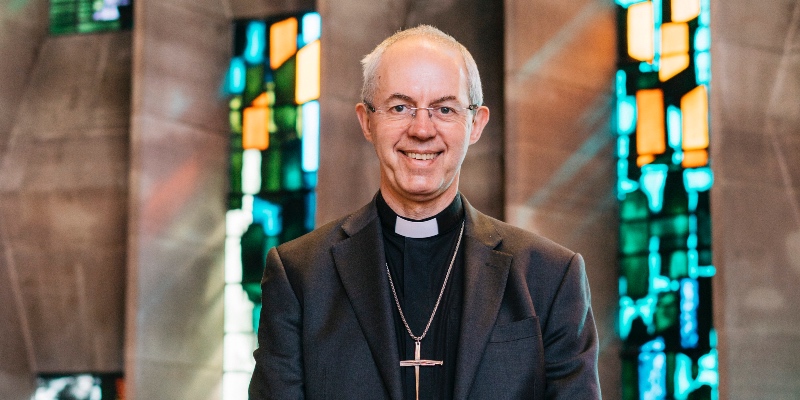‘Service in life; hope in death’: Welby’s counter-cultural message
Amid the pomp and precision, Archbishop Justin Welby’s sermon was so vital, writes Jon Kuhrt

I can understand the feelings of those who struggled with aspects of the funeral of Queen Elizabeth II.
However much respect and gratitude there is towards the Queen, the fusion of militarism, opulence and imperial power alongside Christian worship should create dissonance and provoke questions. The medium cannot be separated from the message.
It’s a struggle I have every time I am in Westminster Abbey. It is a church dedicated to the glory of God, yet it also feels like a temple to British imperialism.
For those who live in countries saturated in wealth, power and Christian religion, it’s a dissonance we cannot avoid. We should always be asking ‘What would the man in the sandals make of it?’
Conviction
This is why, amid the pomp and precision, Justin Welby’s sermon was so vital. In under 6 minutes, he shared a counter-cultural message about the value and priority of life with clarity and conviction.
Welby had some job on his hands. He was speaking to over 5 billion people – over 60 per cent of the world’s population. Never has a sermon had this kind of profile and reach.
And he went for it. He did not couch his message in bland platitudes about Christian values. He avoided what he has described as the ‘moral claptrap’ which so often warps public discussions about faith.
Also, his brevity created clarity: a great example to those who preach. In a lifetime of church-going, I have never felt a sermon was too short.
Counter-cultural
But best of all, Welby shared a radical and deeply counter-cultural message about true value.
The pattern for many leaders is to be exalted in life and forgotten after death. The pattern for all who serve God – famous or obscure, respected or ignored – is that death is the door to glory.
Service and humility before God is not just a nice way to live; it is the route to true greatness:
People of loving service are rare in any walk of life. Leaders of loving service are still rarer. But in all cases those who serve will be loved and remembered when those who cling to power and privileges are long forgotten.
This truth is ultimately embodied by the life and death of the person at the heart of the Christian faith:
Jesus – who does not tell his disciples how to follow, but who to follow – said: “I am the way, the truth and the life”.
Ultimate sacrifice
I will always feel ambivalent about many of the statues and monuments which cover Westminster Abbey.
But there is a row of statues above the Great West door which remember 20th century martyrs who died because of their faith in Christ. They include Martin Luther King, Oscar Romero and Dietrich Bonhoeffer and seven others from across the world.
All of these people made the ultimate sacrifice because, even in the face of threats and oppression, they truly believed what Welby summarised so succinctly on Monday:
Service in life, hope in death.
Image | Jacqui J. Sze
Jon Kuhrt works as a Rough Sleeping Adviser to the government specialising in how faith and community groups respond to homelessness, and is a member of Streatham Baptist Church.
This reflection first appeared on his blog Grace and Truth, and is republished with permission
Do you have a view? Share your thoughts via our letters' page.
Baptist Times, 21/09/2022